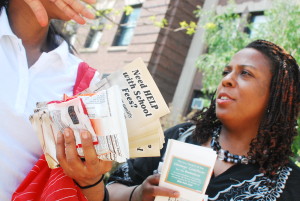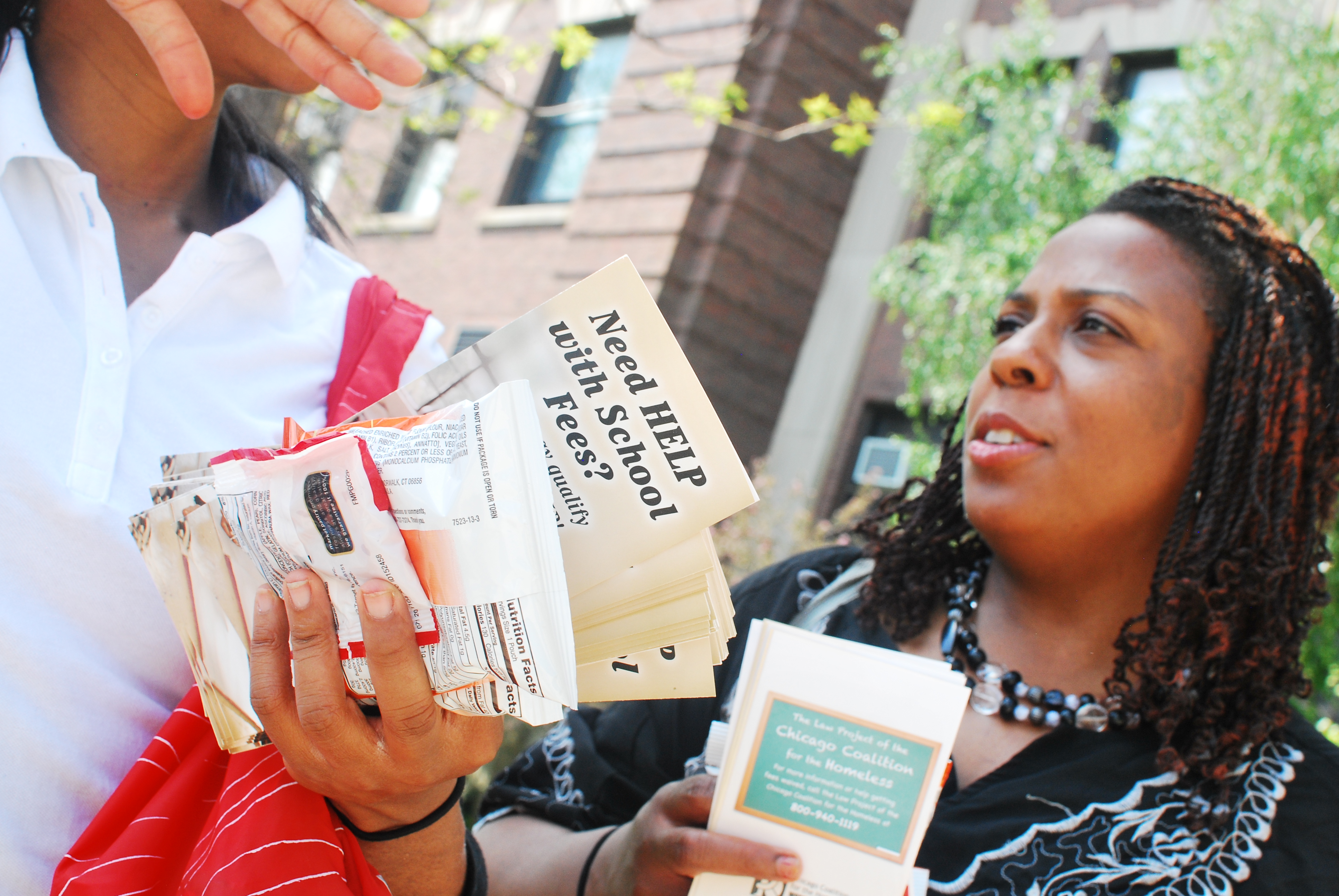Homeless and low-income students in Illinois qualify to have public school fees waived. If waived, a fee is not charged and the student does not owe fees to the school.
Yet every year, the Law Project gets calls from students and parents whose public school is pressing them to pay fees before graduation and the end of the school year.
A student or parent must file a written request to have fees waived. If a student qualifies for a fee waiver, school officials cannot bar a student from attending prom or graduation or obtaining transcripts – though some students who call for help have been incorrectly told this will happen if they do not pay.
Students and parents should phone the Law Project’s toll-free line if they need advice or free legal aid regarding school fee waivers: (800) 940-1119.
To qualify as low-income in the Chicago Public Schools (CPS), a student or family cannot exceed 100% of federal poverty guidelines. That includes annual incomes of $11,670 for a single person, $15,730 for family of 2; $19,790 for a family of 3; and $23,850 for a family of 4.
In suburban and downstate schools, students who qualify for free school meals are eligible for fee waivers.
A fee waiver form (the CPS form is linked here) should be filled out and turned into your school office. Suburban and downstate students should ask their school for the district’s own fee waiver form.
On April 30, the Law Project ran fee waiver outreach outside Chicago’s Hyde Park Academy High School, offered through the Chase Foundation-supported Every Child in School, Every Day program.
Some examples of school fees that must be waived for low-income students:
* Charges for textbooks and instructional materials
* Fees for field trips taken during school hours, or field trips taken after school hours if the field trip is a required or customary part of a class or school activity. This includes annually scheduled trips such as end-of-the-year or graduation field trips and activities.
* Graduation fees, including caps and gowns.
* Charges or deposits for uniforms or equipment for sports or fine arts.
* Charges for supplies for a particular class, such as shop or home economics materials, or laboratory or art supplies.
* Charges and deposits for use of school property, such as locks, towels, and lab equipment.
* Driver’s education fees
* Fees to obtain school records and health services
Schools do not have to waive some fees and costs, though schools often have programs to help students pay these. These fees and costs include ordinary school supplies, class rings, yearbooks, school photos and diploma covers, admission to school dances and athletic events and optional travel.
However, students who are homeless should be assisted with all charges, fees, school uniforms and supplies.
– Patricia Nix-Hodes, Director, The Law Project

